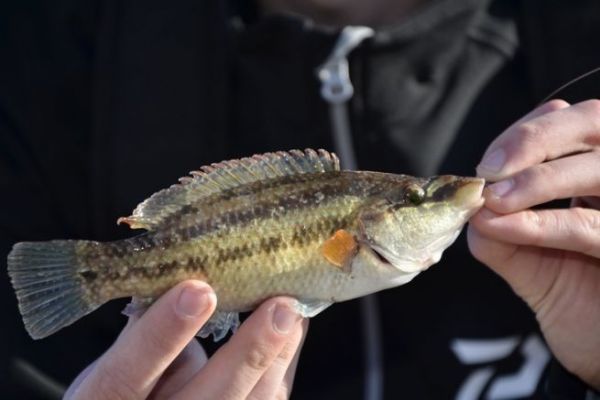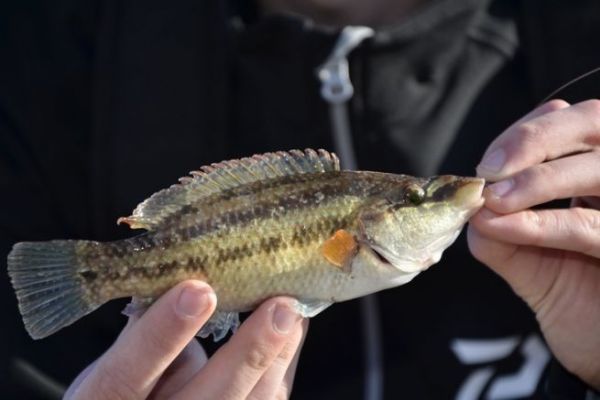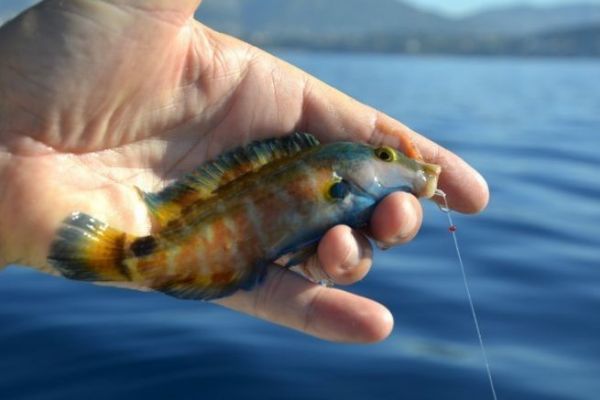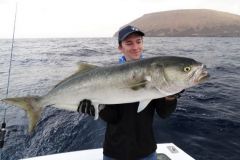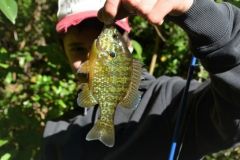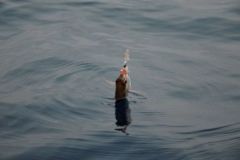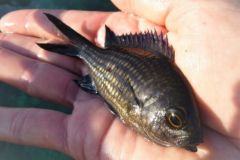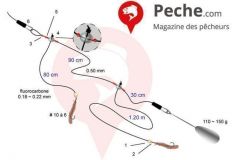Presentation of the peacock crenilabra
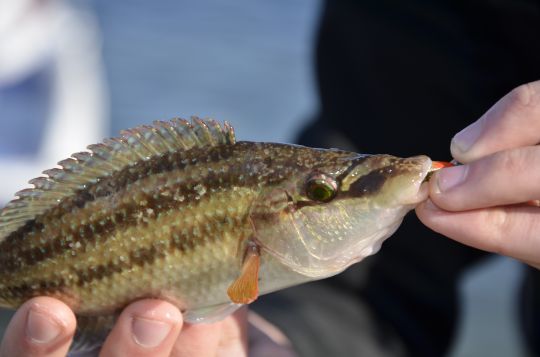
Crenilabra tench, roucaou or rouquier, old, the peacock crenilabra is a common species in the Mediterranean. Of the labridae family, it is one of the most imposing wrasses. Its scientific name is symphodus tinca. The male can exceed 35 centimeters while the female rarely exceeds 25 centimeters.
It is distinguished by its protractile mouth with thick lips and a dark V-shaped band between the two eyes. One can also observe a dark spot on the caudal peduncle. The body of the male has three more or less marked bands with tones ranging from red to yellow, passing through blue and green. The female, smaller, is less colored, with silver-gray tones, brown and green.
Habitat and behavior
The peacock crenilabra frequents rocky bottoms and posidonia meadows. It can be found from the first meters to about 50 meters deep. Its food is composed of various invertebrates (shellfish, worms and crustaceans). The roucaou tears off fragments of algae to find the small invertebrates which hide there.
Reproduction
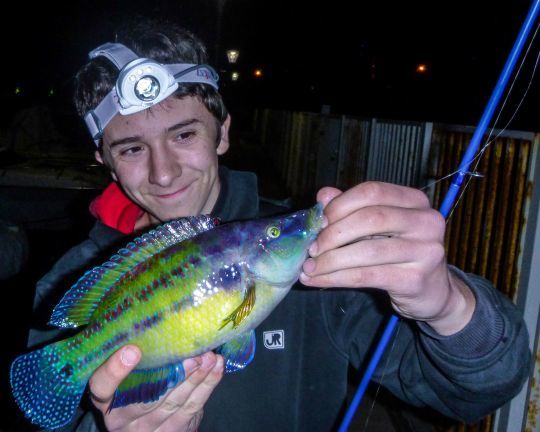
The breeding season extends from early spring to late summer. It is at this time that the male dresses in a brightly colored livery with bright blue and red. It is the male that builds a nest made of seaweed and that takes care of protecting it. It happens that females can become males around the age of three years.
Peacock crenilabra fishing
The peacock crenilabra or rouquier is a regular catch during fishing parties to support. To hope to catch nice red mullet you will have to present your bait as close to the bottom as possible, because they rarely go up in the water layer. To support or to longline, the red mullet is fished with small pieces of worms, shrimps or shells.
In rockfishing it is not uncommon to hook a nice peacock crab on a jig head with a small soft lure and animated on the bottom.
